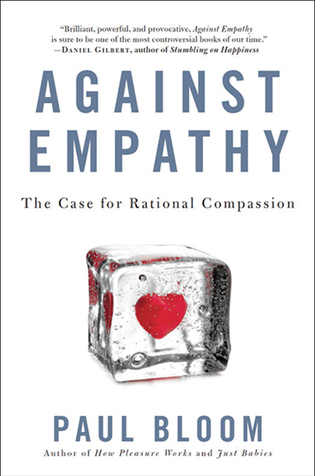 loading
loading
Arts & CultureReviews: May/June 2017Books about empathy, house arrest in Moscow, and reading.  View full imageAgainst Empathy: The Case for Rational Compassion House of Lost Worlds (Yale, 2016), the latest book by Richard Conniff ’73, is now out in paperback. Midway through his latest book, Yale psychology professor Paul Bloom cites an idea from a book called Against Fairness. Then, a little slyly, he adds that he doesn’t mean to pick on the author, “but can you imagine a more obnoxious title?” Well, clearly, Bloom has now done just that and is even the tiniest bit proud of it. “Empathy,” meaning the ability to feel or understand what other people are experiencing, has become very nearly a religious virtue for our time. Bloom counts 1,500 books on Amazon with the word in their titles or subtitles. So what’s wrong with empathy? Bloom likens it to “sugary soda, tempting and delicious and bad for us.” Bad because it encourages us to make choices based on our emotional response, rather than by rational means. And those choices are often “biased and parochial,” with a tendency to distort “our moral and policy decisions in ways that cause suffering instead of relieving it.” After the 2012 Sandy Hook massacre, for instance, well-meaning donors, “guided by the persistent itch of empathic concern,” flooded that relatively affluent community “with so much charity that it added to their burden.” That same year “more schoolchildren were murdered in one American city—Chicago—than were murdered in Newtown,” with no such national outpouring. Empathy misleads conservatives as well as liberals, Bloom writes; they just empathize with different people. During his presidential campaign, for instance, Donald Trump repeatedly talked about the killing in San Francisco of 32-year-old Kathryn Steinle, allegedly by an undocumented Mexican immigrant. Stories like that became the emotional underpinning for the anti-immigrant policies now playing out nationwide. In place of empathy, Bloom argues for “rational compassion,” meaning consideration for the feelings of others but using the head as well as the heart. Readers may resist the attack on empathy. But Bloom is a clear, engaging advocate for his cause, witty, unflinchingly honest, and at times even—yes—empathetic. The result is less the jeremiad suggested by that title, and more a useful exploration of what it means to be a decent human being in a difficult time.
|
|